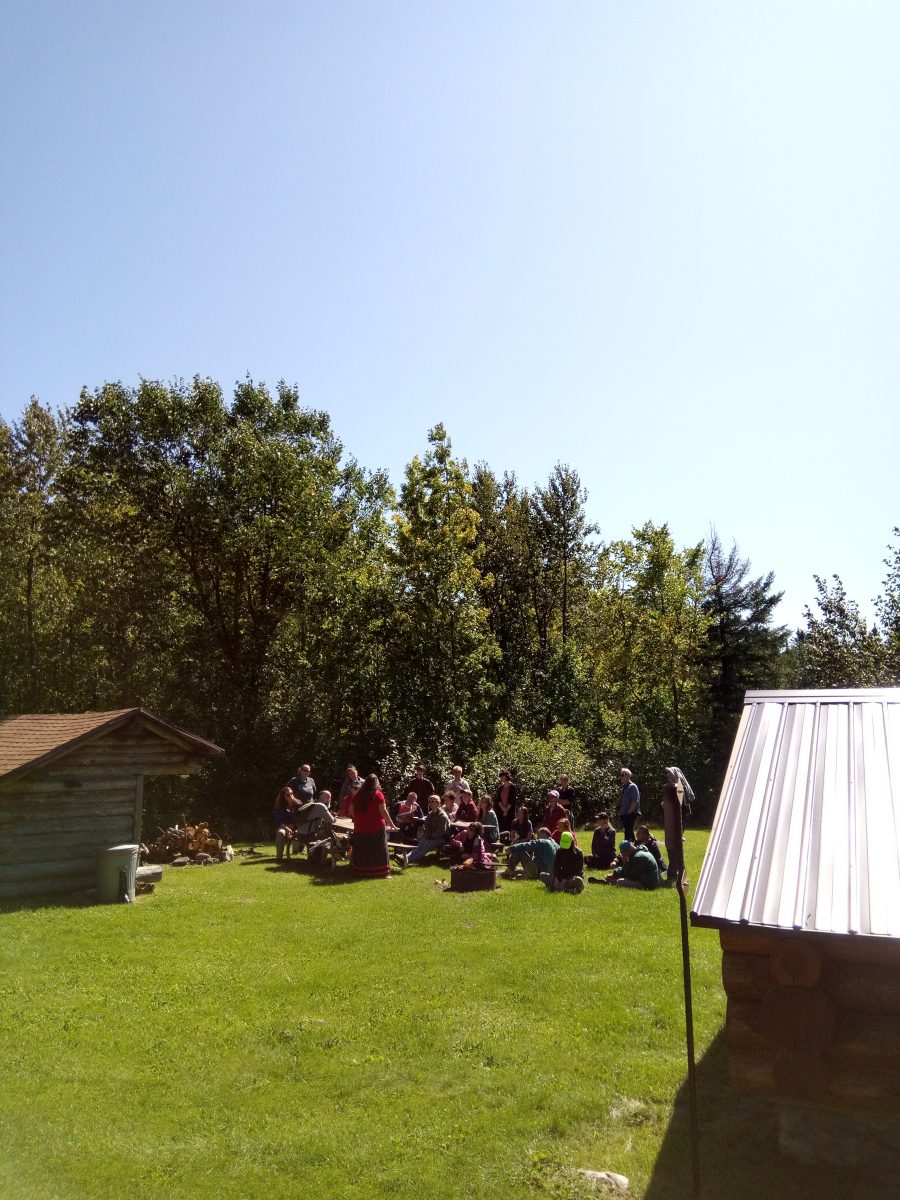Land Acknowledgement Statement
Field Station 1
Before fieldwork on tribal lands can begin, first its legacy of settler violence and oppression must be acknowledged. In this statement created during the Mississippi. An Anthropocene River project in 2019, researcher Anya Kaplan-Seem and new media practitioner John Kim acknowledged the legacy of the land at Coffee Pot Landing, near Lake Itasca, Minnesota—a project site of Field Station 1. The location is the site of the first proposed Line 3 oil pipeline crossing and represents a critical intersection of the political concerns over land and resource rights that plague the Anthropocene.
Coffee Pot Landing, near Lake Itasca, Minnesota. Dawn Goodwin and Jamie Gaither at the site of the first proposed crossing of the Line 3 oil pipeline. Photo by John Kim
This project has been created by a collective of people—each of us differently positioned toward the places in which, and about which, we work—who share the context of working and living on traditional, ancestral, and contemporary homelands of Dakota’s Ho-Chunk, Anishinaabe peoples, Ojibwe, Menominee, Potawatomi, Ottawa, Iowa, Miami, Peoria, Sauk and Meskwaki, among many other Native Nations.
We acknowledge the overlapping histories of this region, including the continuing conditions of stolen Indigenous land and power, in addition to the ongoing violence produced by the legacy of racialized slavery and oppression. We also recognize that the institutions with which we have links have been complicit in the erasures of history and continue to benefit from and perpetuate processes of colonization, broken treaties, dispossession, and displacement. As a project, Field Station 1 is producing art and scholarship about the Mississippi River with the material resources and facilities of institutions vested in European power and settlement, including land-grant universities. We work to educate ourselves, our campuses and communities about the complex history and its contemporary manifestations in the region. Responding to these considerations, Field Station 1 endeavors to work collaboratively and critically with a diverse group of participants from the outset. We also organized a number of activities in the headwaters region of the Mississippi River during the kick-off event (August 27–29, 2019) as a practice of land acknowledgement to open the Mississippi. An Anthropocene River project. These conversations acknowledging the historical legacy of the region continue in the Driftless Area at Field Station 2 (September 25–29, 2019), where issues concerning settler-colonialism, racial capitalism, and Indigenous resurgence converge. We hope that these practices continue further downriver and throughout the project.
Anya Kaplan-Seem and John Kim for Field Station 1

